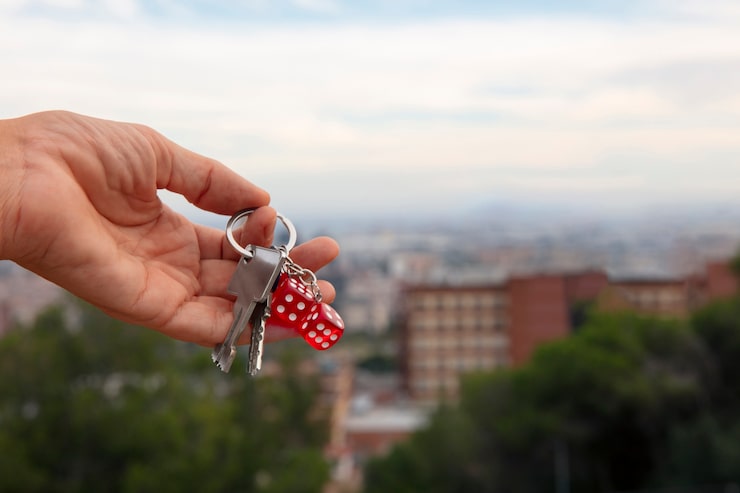
A big part of our plan to retire early is owning four single-family rental homes. We’ve been lucky to have very low vacancy in a market with high tenant demand here in Minneapolis. Below are ten tips for managing rental properties—good advice if you want a profitable side hustle.
I moved from the suburbs to the city more than 12 years ago, and being a landlord has taught me what city living is really like. That move was also my first real experience owning and caring for a home.
I had to learn the basics of home and yard maintenance. I already knew how to mow and shovel, but that was the easy stuff. I didn’t expect to figure out how to install a range vent or fix HVAC systems, washers, or dryers. The hands-on things I learned while maintaining our house—and the relationships I built with neighbors—turned out to be really useful once we became landlords.
So if you’re thinking about rentals to speed up your financial goals, these tips should help. Okay, let’s get started.
Even if the lease allows a $50 late fee, don’t take advantage of tenants who are struggling. Many make a lot less than you and sometimes have to scrape together rent. Be flexible, but expect tenants to communicate ahead of time if they’ll be late.
Bonus: Don’t raise rent for existing tenants unless your operating costs go up significantly. Lately property taxes have jumped, so we’re raising rents only enough to cover about 90% of that increase.
Showing a unit when a lease ends is a hassle for both landlords and tenants. Coordinating showings around the current tenant’s schedule, while you may have a day job, is a headache. To avoid that, I ask the current tenant to show the unit to prospective renters. They usually want the process done quickly, so they clean up, highlight the place’s best features, and often speak well of the unit and management. It saves me a lot of time and limits no-shows.
Offering a small discount for longer leases can save you time and turnover headaches. Lately I’ve offered a two-year lease for a small monthly discount—for example, $1,395 for one year vs. $1,375 for two years. That’s about $240 less per year, but it’s worth it to avoid tenant turnover, which is where most of the landlord work happens. Aim to make rentals as passive as possible.
Always meet new tenants in person after screening them. I like to do it at a nearby coffee shop to go over the lease and get to know them. We review key lease items so there are no surprises. Early on, tenants once called a plumber for a clogged tub drain even though there was a second working bath. That “emergency” cost nearly $500. Now I tell that story to new tenants as an example of why they should contact me first for maintenance—please call me before hiring someone.
I learned the hard way about tenants breaking a lease early. It happened twice in one year. I’m reasonable if there’s a valid reason, and in those cases I didn’t make a big fuss because I found new tenants quickly. But now I include a clause that lets tenants break a lease only by paying a fee equal to $400 for each unpaid month. That makes tenants think twice before leaving early and helps protect me from loss.
Do seasonal checks in late fall and early spring. In the fall I’ll clean gutters, turn off outdoor water, and check furnace filters (they’re often filthy despite lease language about changing them). I also clean dryer vents, test smoke and CO detectors, and do a quick walkthrough. In spring, I turn water back on and repeat the checks. Give tenants space, but don’t assume the house runs itself—things break.
I use YouTube a lot for washer and dryer repairs. It’s useful, but only if you’re confident in the fix. Replacing a part can take an hour, but you need to be at least 90% sure you know the problem. If research points to several possible causes and the chance of success looks low, call a pro.
Make tenants responsible for utilities like water and trash. When tenants pay, they conserve. It also teaches a bit of how owning a home works—nothing is free. One downside: a high water bill tipped me off that a tenant had taken in an extra person without permission. That’s why twice-yearly inspections are important.
Be careful with pets. Our first tenants had a “cute” puppy that grew into a huge dog and damaged carpet and screens. Now I limit dogs to 30 pounds and approve breeds beforehand. I charge a $200 upfront pet fee and $20 per month pet rent to help cover long-term wear on floors and finishes.
Take pride in your rentals. Don’t let anyone live in a unit you wouldn’t live in yourself. Keep high standards, answer calls and texts promptly and politely, and help with small repairs—even if the lease says tenants handle items under $25, I usually cover them. Treat tenants like customers: respond quickly, fix problems fast, and acknowledge major life events like marriages or new babies. Those small gestures build trust, and tenants will return the favor by speaking highly of you to future renters. Be understanding when things break—houses need upkeep, and the more trust you build, the better you’ll sleep knowing your properties are in good hands.
